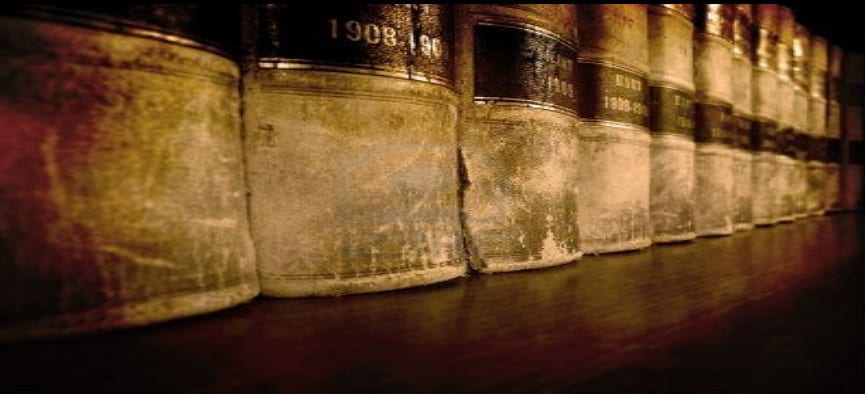Clients often ask why their lawsuit is taking so long to resolve. The slow turning of the wheels of justice is a source of understandable frustration for clients, especially for those with cases that appear relatively simple and straightforward. Notwithstanding our efforts to bring matters to a successful conclusion as quickly as possible, key elements of the litigation process can wind up slowing things down significantly.
There are many reasons that the process takes so long; everything from a court’s crowded docket to pre-trial challenges regarding the sufficiency of the complaint or the validity of the cause of action. But the principal reason the pre-trial phase of litigation can take a while can be summed up in one word: discovery.
‘Discovery’ is the term used to describe the process of requesting and exchanging information between the parties. It’s the part of trial law that they don’t show during one-hour legal TV shows. It can involve slogging through thousands of documents and emails as well as depositions of witnesses and parties that may not have much to say. But it is designed to make sure that neither party hides the ball and that all relevant facts regarding the case are disclosed. While it may often lack the drama of a trial, the discovery phase of litigation is critically important and can often determine whether a case is won or lost or whether one party or the other may want to rethink their settlement posture.
Federal courts as well as New Hampshire state courts have extensive rules that govern the discovery process. In New Hampshire, Section V of the New Hampshire Superior Court Rules lays out how and when information is to be exchanged, the kinds of information that can be requested and obtained, and what happens in the event of disputes during discovery.
Discovery can be complex, but there are four basic tools used to gather crucial evidence and information:
Automatic Disclosures – New Hampshire Superior Court Rule 22, like Rule 26(a)(1) of the Federal Rules of Civil Procedure, requires each party to a lawsuit to make certain disclosures of information and documentation to the other party shortly after the lawsuit is filed. According to the official Comment to the rule, the goal of these disclosures was to “help reduce “gamesmanship” in the conduct of litigation, reduce the time spent by lawyers and courts in resolving discovery issues and disputes, and promote the prompt and just resolution of cases.” These disclosures must include:
• Names of all people who may have information that the party may use to support their claims or defenses, including a summary of the information they have;
• Copies of all documents, electronically stored information, and tangible things that the disclosing party has in his or her possession, custody or control and may use to support his or her claims or defenses;
• A computation of each category of damages claimed by the disclosing party together with all documents or other evidentiary materials on which each computation is based;
• Any insurance policy that may cover the claims involved in the case.
Notwithstanding these disclosures, the parties usually engage in additional discovery, including use of the following:
Interrogatories – Interrogatories are written questions that are posed to the opposing side and cover any subject that may lead to the discovery of relevant information. The answers to these questions have to be delivered within a set period of time, and the responses are deemed to be under oath. In addition to obtaining information, answers to interrogatories can be used later in the case to support motions or impeach a party whose answers on the witness stand contradict those they gave in their interrogatory answers.
Depositions – Depositions are like interviews conducted under oath and in the presence of a court reporter, attorneys for all parties and sometimes the other party themselves. Opposing counsel will ask the opposing party or third-party witnesses questions designed to discover relevant information or lock in their sworn testimony such that it can be used later if they attempt to change their answers. A key distinction between the questioning conducted during a deposition and that done at a trial is that there are significantly fewer valid objections to questions that can be made at a deposition.
Requests for Production – A Request for Production is used to obtain documents and electronically stored information (as well as tangible property on occasion) from the other party. In the past (and still in some cases), this could involve the photocopying and exchange of boxes and boxes of documents, all of which need to be reviewed by the producing party’s attorney before delivery to ensure that no privileged or unrequested documents are produced. Then, these documents need to be reviewed by the requesting attorney.
When tens of thousands or hundreds of thousands of documents are produced, and when only a small fraction of those actually contain useful information, this process can be time-consuming and tedious. As more and more information is stored electronically, the rules have been updated to address the production of electronic information.
There are additional aspects to the discovery process, such as subpoenas to non-party witnesses, and sometimes lengthy battles over whether a request is appropriate or whether a party has produced all information they were supposed to. All of the foregoing can take time, and is rarely the subject of scintillating screenplays. Nevertheless, discovery is perhaps the most impactful period in a lawsuit’s lifespan. While the passing of time can be frustrating when you have so much on the line in a lawsuit, it’s important to understand that discovery is as much a part of a lawsuit as a trial.
This website has been prepared by Bouchard, Kleinman & Wright, P.A. for informational purposes only and does not, and is not intended to, constitute legal advice. The information is not provided in the course of an attorney-client relationship and is not intended to substitute for legal advice from an attorney licensed in your jurisdiction.

